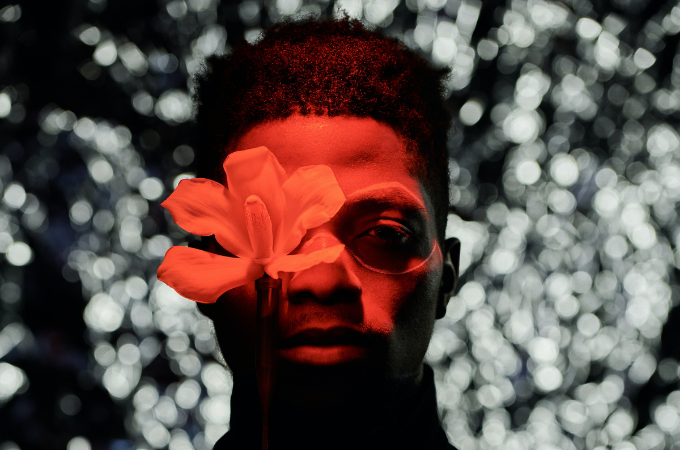
There are many things I do not tell Mama. Like when she says arigbe, then tells me to pronounce it over and over again before sending me off to the market, I do not tell her I wished she would write it down, that the word was so heavy I had to sing it all the way. Or when she asked about school on my first day and how well the class had welcomed me, I did not tell her about the loud boy who said I was too light-skinned to be Hausa, that Hausa pikin were black black like polish, and the class laughed. I said school was fine, because fine was what our class teacher said people say when all is well. I wanted Mama to feel all was well, that I was fitting in since I became her live-in helper.
So, when she asks about Christmas in Borno, while we peel the backs off boiled cocoyams for soup—first, dipping my fingers in cold water, then pinching the head of the cocoyam, gently squeezing to let it slip out of its back, then putting my fingers back into the water to cool it from the stinging heat—I do not tell her about how I sometimes played Mary in the church drama when the girls didn’t know how to carry themselves like our drama tutor said. I tell her, instead, about free food, and free drinks, and how easily one got money from drunk adults by simply saying Merry Christmas.
“Free food, and drinks, okwaya,” she says. I nod. She throws a cocoyam into the bush. Bad one, she says, then raises her eyes to look at me. “And the masquerades, tell me about the masquerades.”
“Masquerades?”
“Yes, those masked boys with long whips, are they as dreadful in your place?”
I arch my brows and begin to think about what boys in masks with long whips would look like, should look like. I picture tall tree trunks with leafless branches.
“Masquerades. No masquerades. We eat. We dance. We drink many many coke,” I say. Mama nods, again, a smirk on her face, then continues to pick the cocoyams. I want to tell her of the many times we had to run from masked men wielding guns, shooting sporadically from fast running trucks, and how we ran with meat in our mouths and Coke in our bellies, running and falling and running again. All because we were Christians who sang Joy to the World loudly and had glee in our eyes, Christians who did not like their Qur’an.
“Christmas will be better here,” I say, instead. Mama smiles and the folds of skin on her jaw stretch into a ridge. I smile, too.
“You will like it here, too. Christmas. Lots of activities — there is the wine carrying, funerals, weddings, masquerade festival. You will see various masquerades come out to display at that market you go to buy things. You must run from the ones with whips. I need not tell you, gbo?” She says something in Igbo, then continues in English. She does not look at me as she speaks. “There are masquerades that do not flog. You will see the dancing ones, Adamma, the beautiful masquerades. Though worn by men, but hapu, you should see them dance, better than women. You know, the way you do, like a woman in a man’s body.” She wiggles and begins to laugh. She turns to me. I begin to laugh too. I try to avoid looking at her bare breasts dangling from her chest. I fail.
I stand to begin pounding the cocoyams. The sound of the pestle meeting the cocoyams is satisfying. I am reminded of rice farms in June in Borno, a large spread of brown mushiness. Mama’s eyes follow the rise and fall of my pounding.
“The harmattan is late this year. Uwa mmebi. The world is dying,” mama says, then snaps her fingers. The disgust on her face reminds me of my class teacher, the way she looked at pupils who came late before whipping them, or before sending them off to the school farm to weed. I am glad the school days are over. I miss arithmetic classes and playing oga with the girls at break, but Christmas reminds me of lots of fried meat and Coke, and Christmas in Anambra should be peaceful, no? I try to focus on the cocoyams.
“Rest. Rest small, inugo,” mama says, pointing at a stool. I leave the pestle in the mortar and sit. “My son and his family will arrive tomorrow from Abuja. We will need the strength to clean the house tomorrow morning before they arrive.” I nod.
“I am making this soup for him. It is his favorite. Onugbu.” She is staring at the motar, smiling, and I know she is thinking of something, perhaps how good the soup would taste. In a distance, a cock crows. A neighbor barks at her daughter to hasten up with the cup of water before she slaps thunder into her eyes. I giggle. Mama turns to look at me.
“You will like his children. There is Tunechi who never looks at anyone and speaks less, then there is little Kamsi who is everywhere and says everything that comes to her head. Everything. Anything. Mba.” Mama doesn’t say anything about his wife.
“Ngwa, let’s continue. You are almost done.” I stand. The evening breeze is chilling.
In the morning, we clean out the rooms and air the rugs outside. While cleaning the pictures in the sitting room, mama talks about the memories behind each one, saying many things in Igbo, smiling and laughing and staring too much at a photo. I smile when she smiles and laugh when she laughs, and I do not know why.
While I rest at the balcony – humming Mary’s Boy Child Jesus Christ was Born on Christmas Day – watching the afternoon breeze brown the green glare of the udala tree at the center of the compound, a red Mazda drives in and pulls in beside the tree. Before the car comes to a halt, the back door flings open, and a girl screaming Mama! Mama! runs out. She stops at the door when she sees me.
“You are the Hausa boy, John. How are you?” She is not little. She is just like me. I stand from my mat. My stomach tightens.
“Fine,” I say. I bow my head like my class teacher said we must do to people during the holidays.
“How old are you?”
“Twelve.”
“What class?”
“Primary four.”
She raises a brow, then giggles into the house still calling Mama.
Mama’s son holds his wife as they walk in. They are tall and smell like rich people, like Alhaji children.
“Kedu?” they ask.
“Fine,” I say. A bow. I do not look at their faces. I do not know how to look at their faces.
Tunechi is last. He looks at me and holds his gaze. His skin is unusually dark. I look at him, forgetting to bow, forgetting to say Merry Christmas. My stomach loosens into scattered crumbs. I take the bread and bananas and groundnuts from his hand and walk into the house. He follows.
The house feels alive with so much warmth, so many voices saying everything at the same time. Kamsi is loudest, wanting to tell everything. She speaks everything in English while her parents speak mostly Igbo. They had bought soaps and wrappers and perfumes in elegant bottles for Mama. She is smiling, laughing, thanking her son and repeatedly saying welcome like she had long wanted to say those words. Tunechi sits still, speaking only when spoken too. I stare at him, and he is unaware.
That evening, while I prepare dinner, Tunechi walks into the kitchen holding a shirt. He holds it out to me and says, “For Christmas”. I rinse my hands, dry them with a napkin, and take the cloth from him. I thank him. He stands there, staring, his towering frame fixed at the door. I stare back. He doesn’t look at me like my classmates do, his is a tender stare, a kind of tenderness that often turns into a longing. “Okay,” he says, as if remembering something, then he turns to leave.
I raise the shirt to my gaze. It looks a little too big for my size. I press it to my nose. Rich people’s smell. For Christmas. I begin to twirl. I twirl and twirl, the shirt swooshing in the air. I feel I am Adamma, performing a solo debut. I am not thinking of arithmetic, or Coke, or fried beef — I am thinking of Tunechi saying for Christmas in my ears, feeling the warmth of his breath against my skin.
It is Christmas Eve. Outside, the harmattan descends in a white film, stealing into the kitchen. I put some palm oil over my lips and pat them.
Photo by Norma Mortenson from Pexels



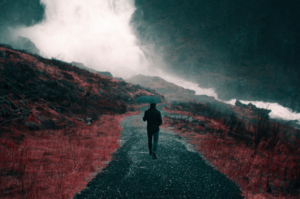
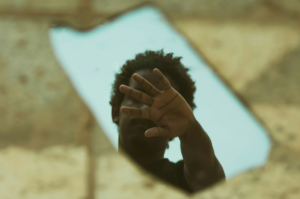
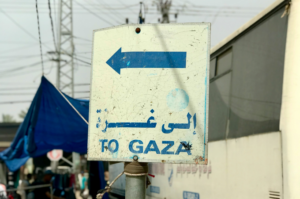
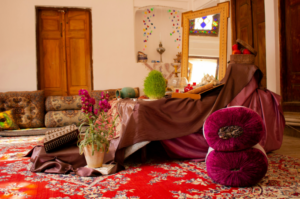
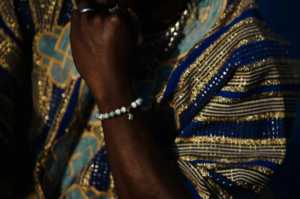
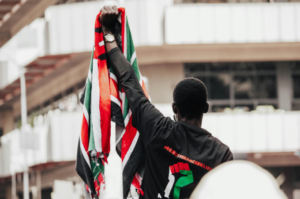

Ifesinachi Paschal December 28, 2021 17:39
The intense creature and walks on words.. With an immense suspense makes one wanting to dive into the oceans of thoughts and conscious discovery of self.. Bryan surely knows how to bring man imagines to life .. Nice one